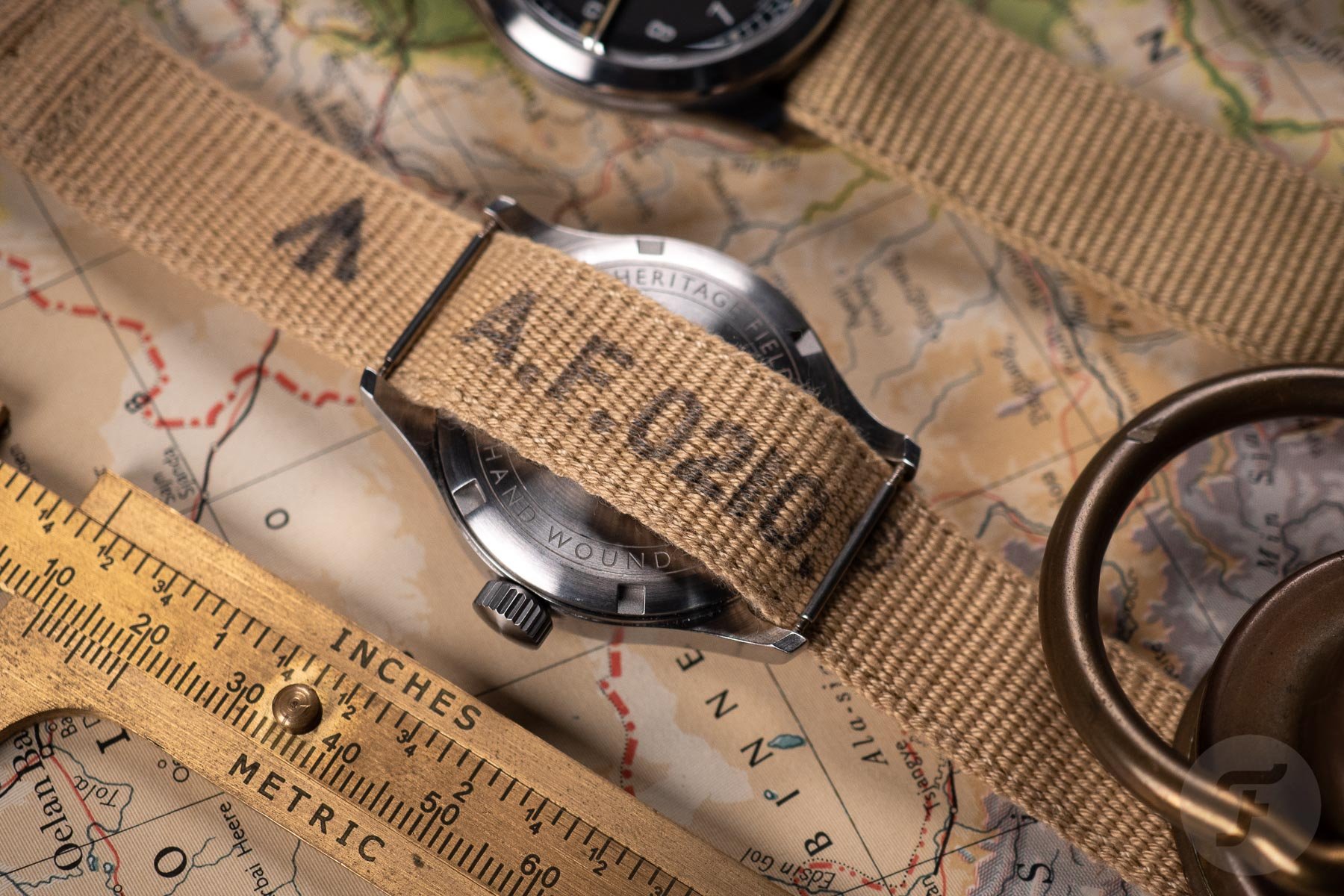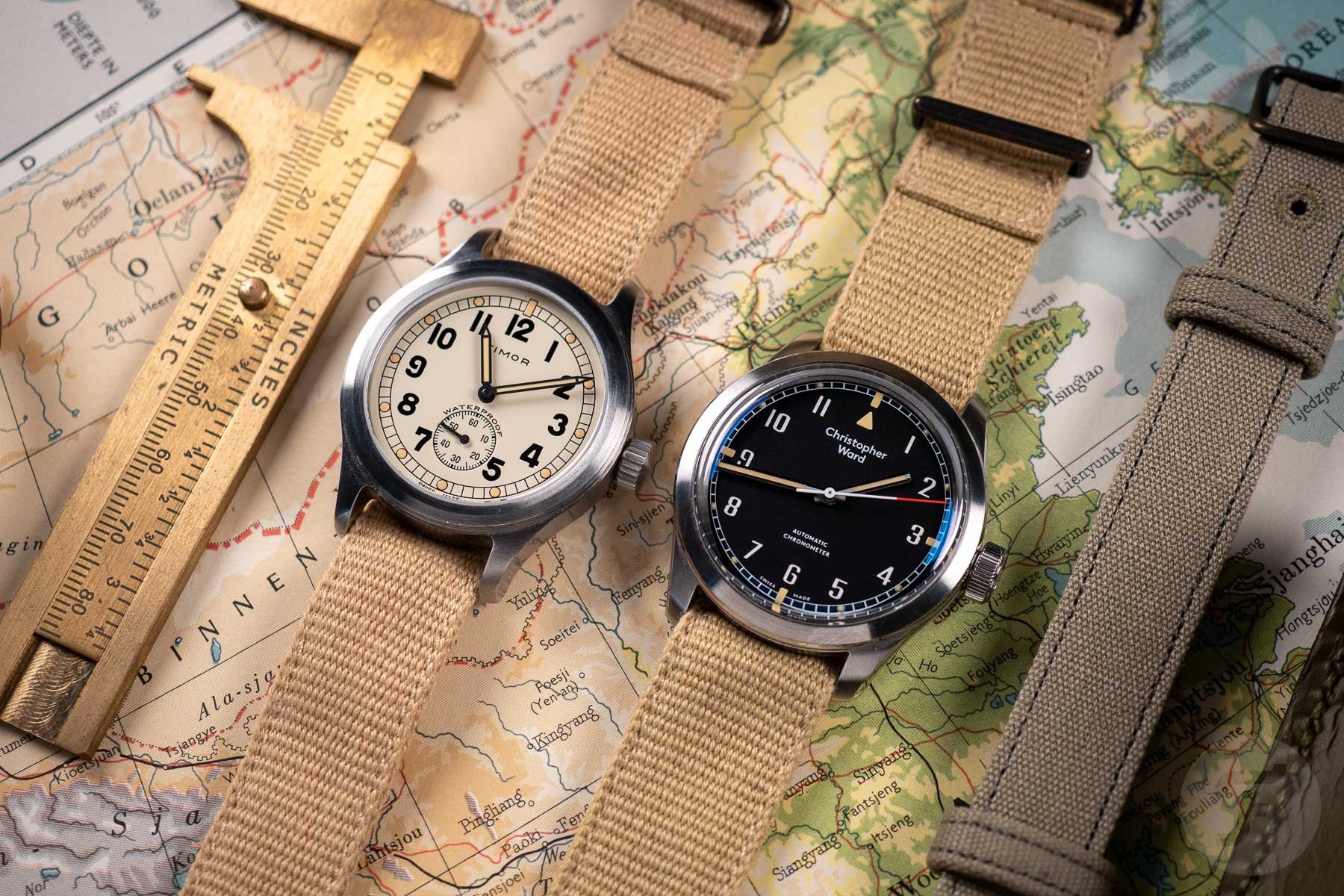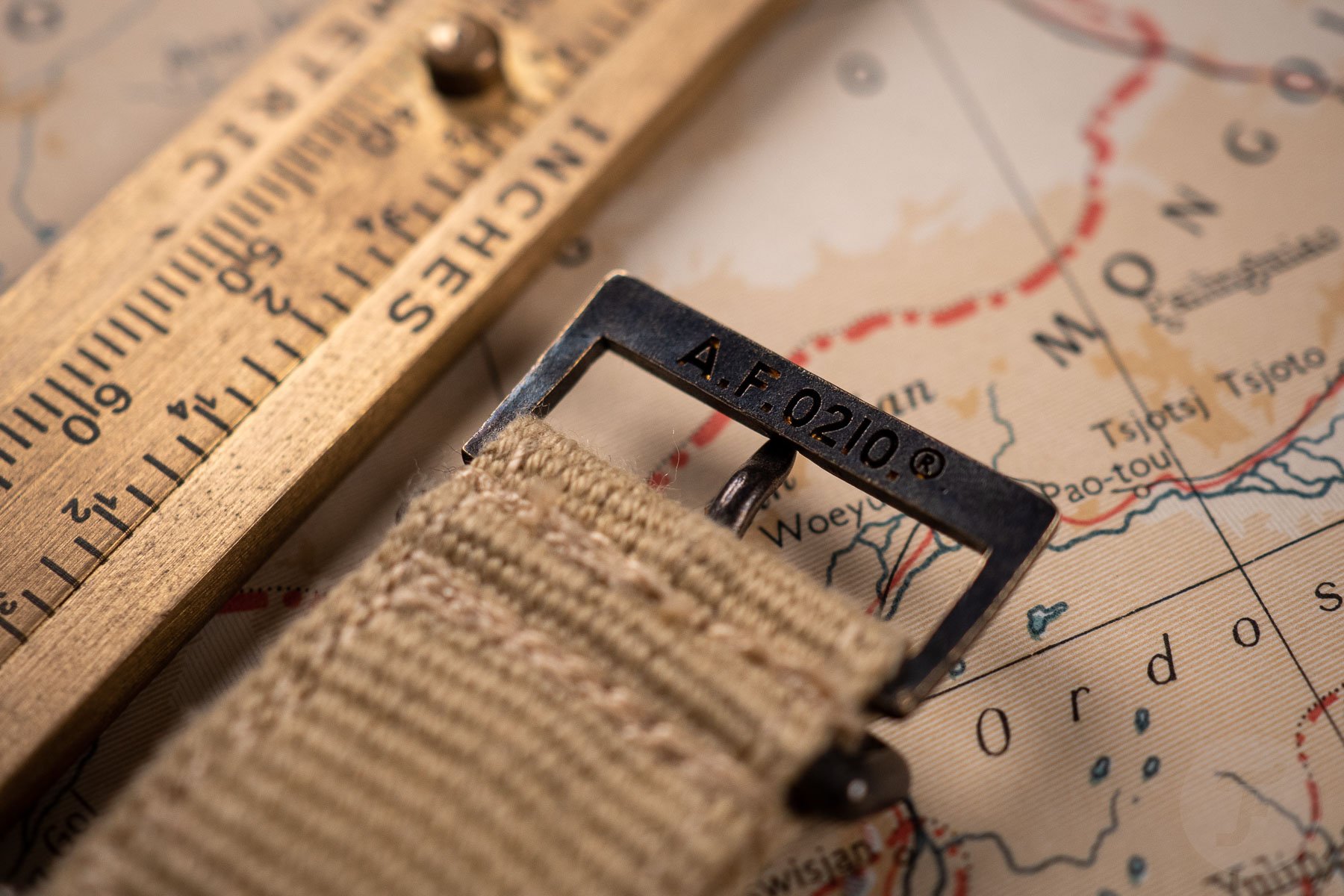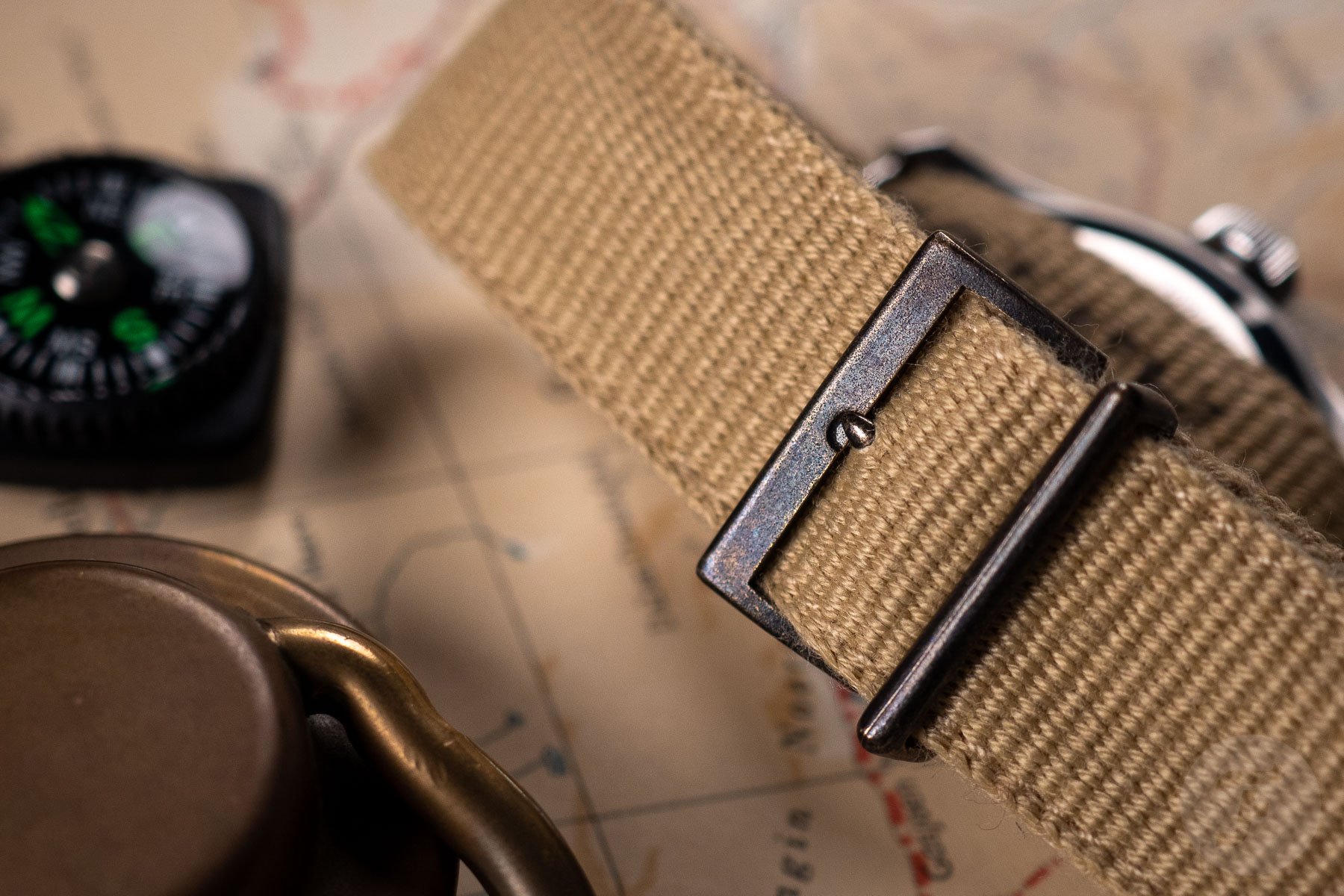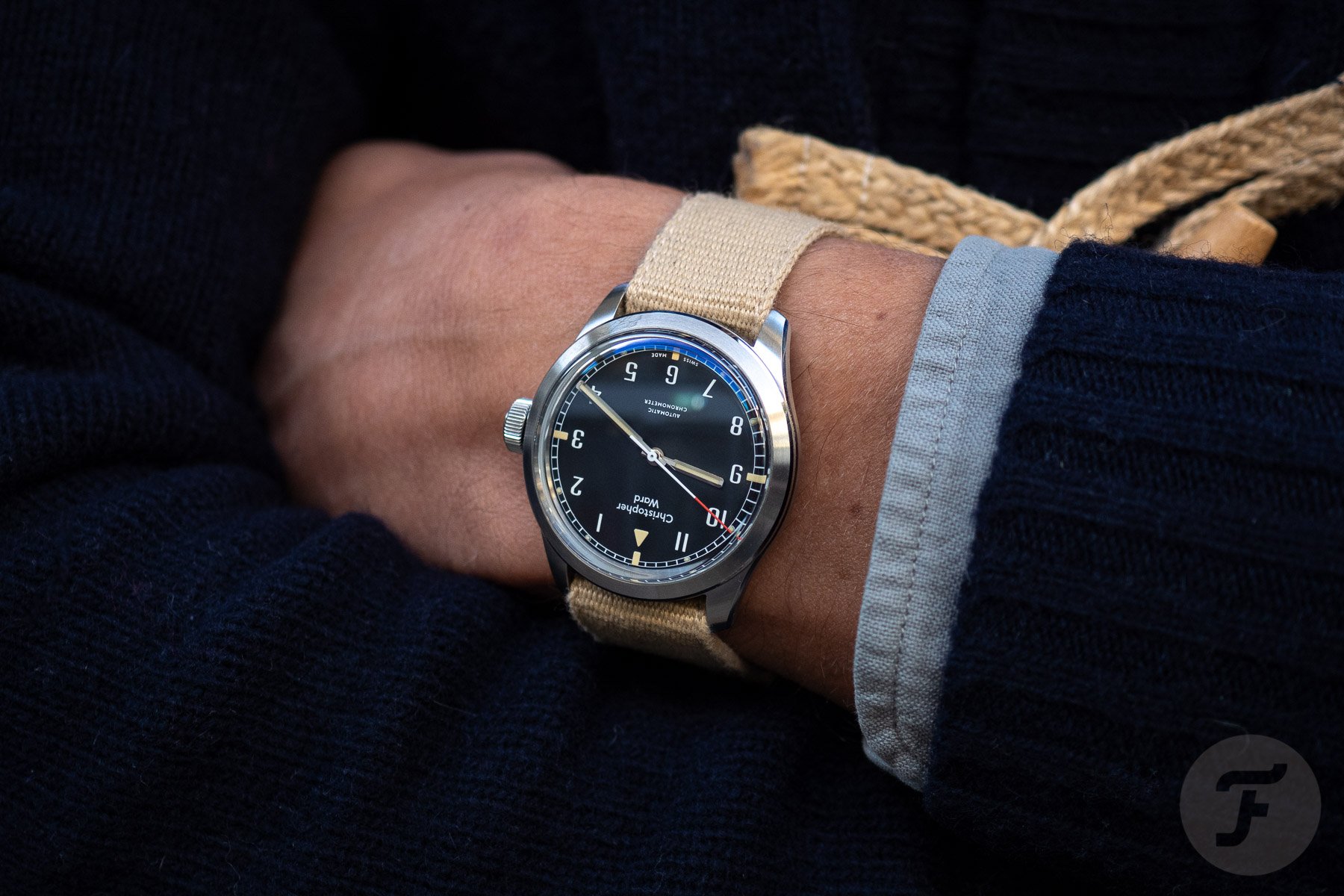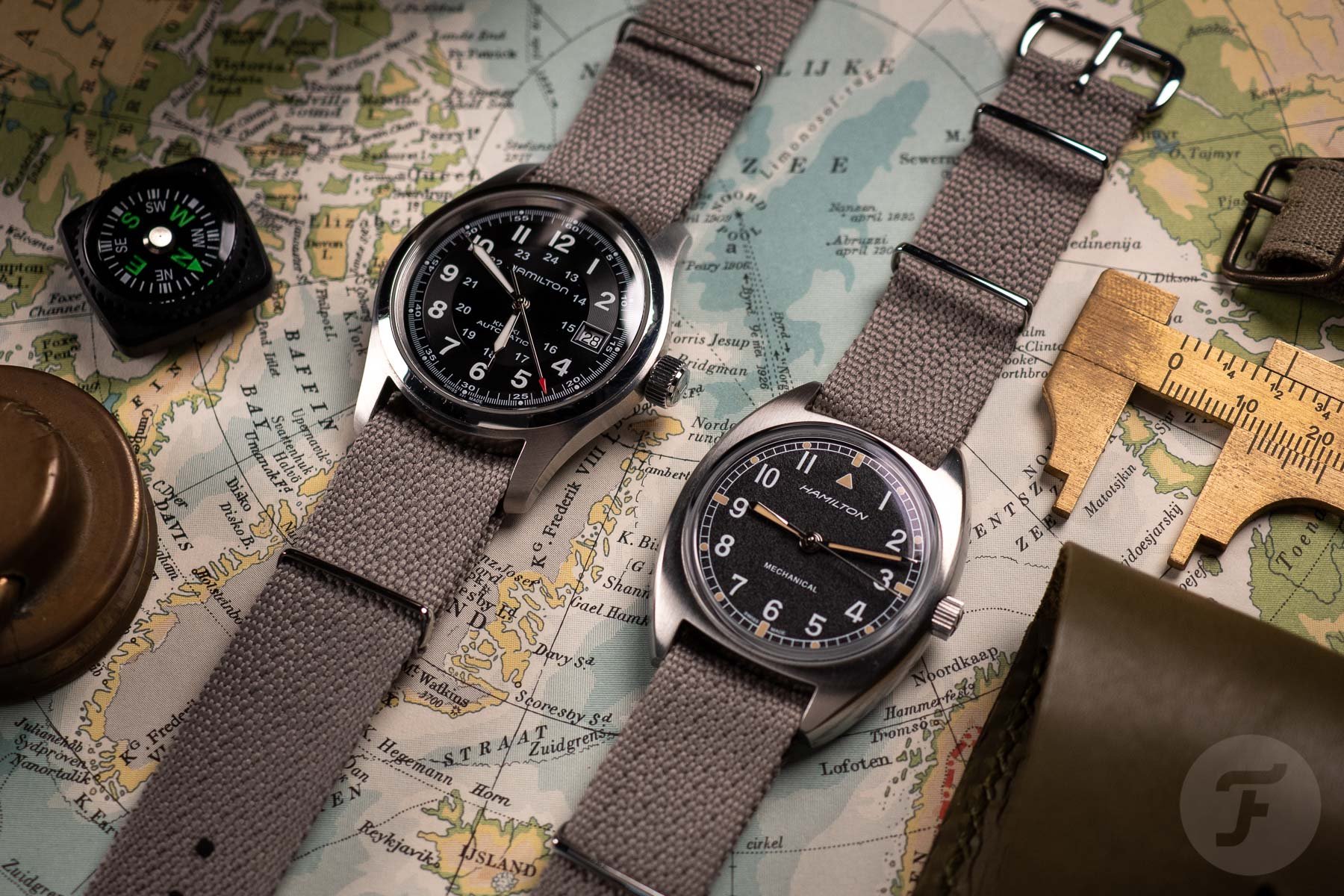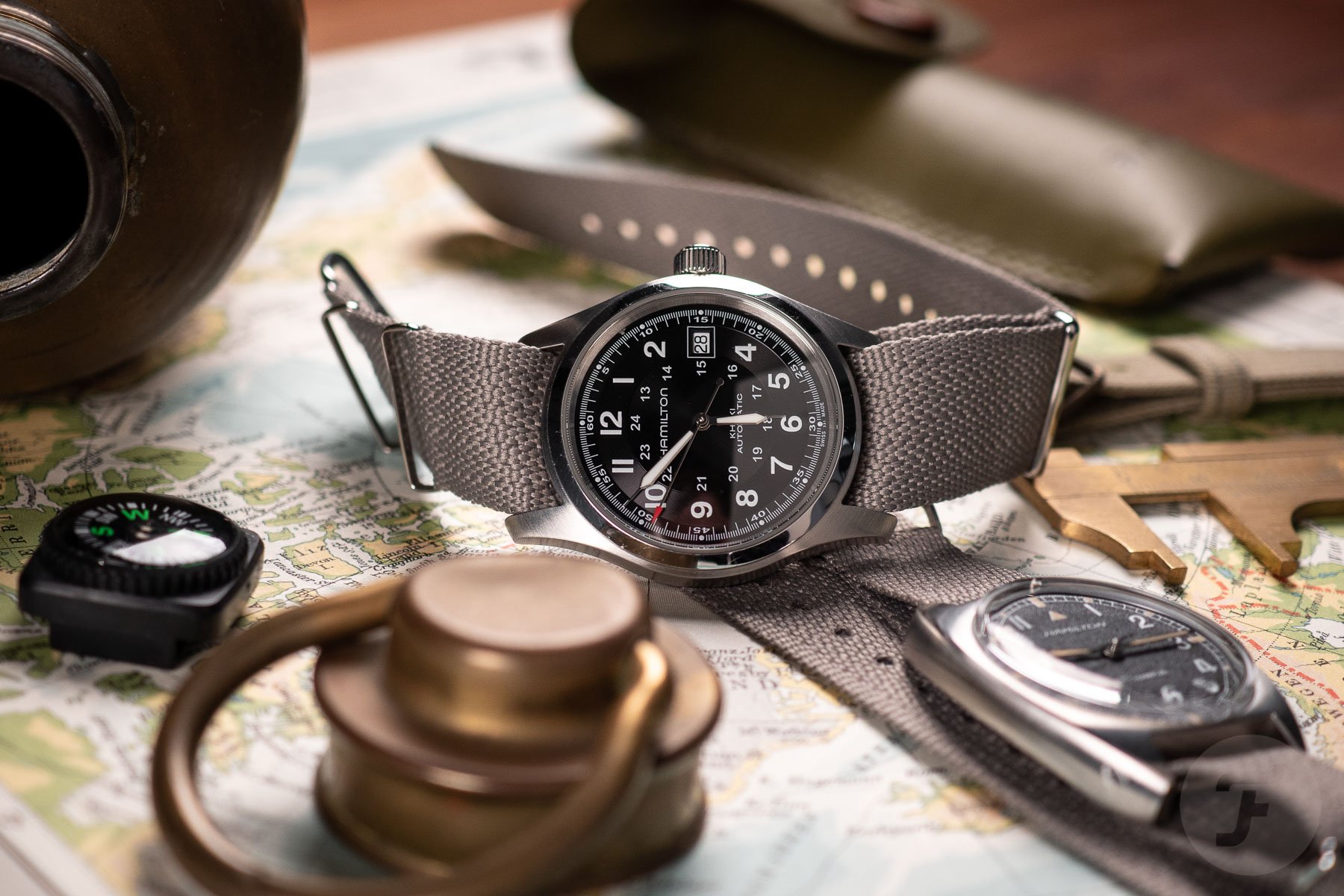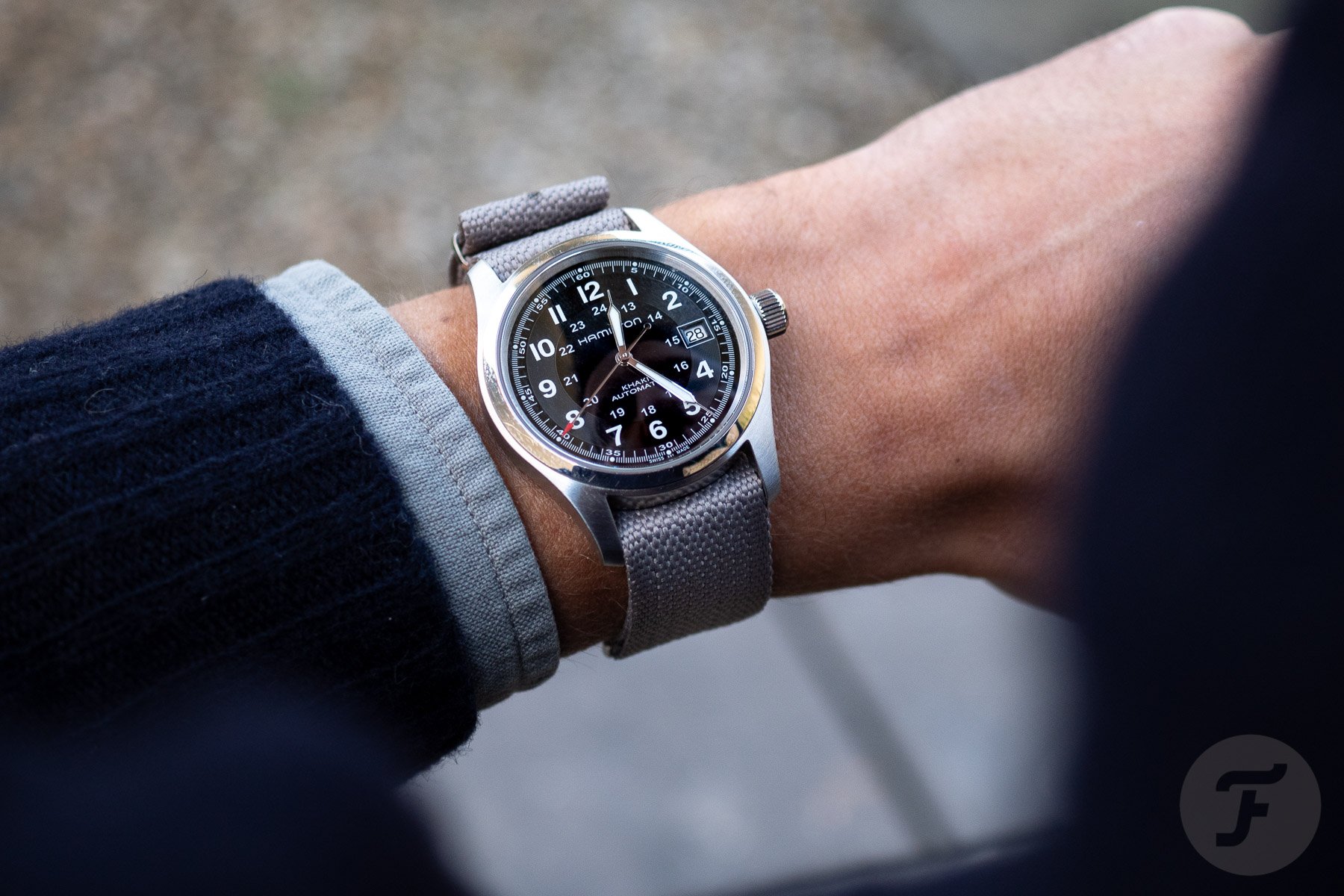A.F.0210. Straps — The Search For The Perfect Strap For Your Vintage(-Inspired) Field Watch Is Over!
As some of you know, I’m more of a bracelet guy, but I still buy watch straps from time to time. There are many companies out there offering watch straps nowadays, and let’s be honest, many of them offer very similar products. Some specialize in leather straps, others are more into textile straps, and there are even those who offer the whole shebang. But when I first saw the straps from Rob over at A.F.0210., I knew they were something different!
Our very own Balazs reviews straps from many different strap makers. And he has indeed reviewed a few very nice ones that offer something that isn’t available from just any strap shop. But I’ve never heard him talk about the military-inspired straps from A.F.0210., even though their historical counterparts were the precursors of the oh-so-popular NATO straps. So let me introduce you to A.F.0210. because I think the company offers some unique that would look great with your vintage(-inspired) field watch. I’ll start with the one the company derived its name from — the A.F.0210. strap.
The A.F.0210. — A predecessor of the NATO strap
Before I did some research for this article, I had no idea that the first leather NATO-like strap — the Victor Strap — had already surfaced around 1908. It was in 1954, however, that the British Ministry of Defence introduced the actual NATO strap. But soldiers had been wearing many different kinds of straps before then. There was, for example, the stainless steel Bonklip from the 1920s, and there were various versions of textile straps. One of them was the cotton A.F.0210. from the British military, which was first introduced in 1945.
It was a strap made of warp thread loose weave cotton webbing with a standard camouflage khaki color. The fabric was specifically chosen and suitable for the warm and sweaty jungle conditions out in the Far East. It consisted of one folded piece of cotton, about 250mm long, with a brass buckle and two keepers at the end. The buckle tongue had a sharp tip to pierce through the fabric and allow the wearer to fasten the strap in any position. Finally, the strap was stitched all the way around at 2mm from the edge, and “A.F.0210.” was stamped on the back. And that’s exactly the strap that Rob set out to reproduce.
Cotton instead of nylon
When I first took the strap out of its packaging, it immediately felt special. Most textile straps currently on the market are made of nylon, but the cotton fabric of the A.F.0210. feels very soft right off the bat. And as there’s only stitching and no heating used to finish the strap, there are no sharp sides. What is indeed very sharp is that buckle tongue, which you just stick through the fabric. It feels a bit weird to do so for the first time, especially with a brand-new strap. But once you get used to it, it’s actually quite convenient because you’re not dependent on the holes you’d normally find on a strap. This allows you to attach the buckle at exactly the right length for your wrist, just as you would with a Perlon strap.
And although this is a brand-new strap, it doesn’t really feel like it. The cotton is so soft that it feels like it was already broken in. Furthermore, the brass buckle and keepers looked like they had seen a lot of use before the strap arrived at my doorstep. But that broken-in look is exactly what sets this strap apart from all the other ones on the market. In fact, that’s probably what you want when you buy a period-correct strap like this. This is especially true if you put it on one of the Dirty Dozen watches from that same era. But if you put this strap on any of your modern vintage-inspired watches, it makes it look like your watch suddenly aged a few years. It’s brilliant. The original A.F.0210. strap was 17.5mm wide. Rob offers this size but also 20mm and 22mm versions to cater to the more common lug spacings these days.
The 6B/2617 — One of the first nylon NATO straps
The next strap I’d like to highlight from Rob’s collection is the gray nylon strap that made me aware of the company’s existence. It came with a CWC G10 from 1988 that I bought from another watch enthusiast on the Dutch watch forum. When the package arrived in the mail, I spent just as much time looking at the strap as I spent looking at the watch. It felt so thin, supple, and soft, almost too delicate to hold the weight of a stainless steel watch. The 18mm strap looked right at home on the G10. But I also paired it with my 38mm Blancpain Bathyscaphe, and although it was a bit narrow, it was actually a great match.
The 6B/2617 strap is based on one of the British military’s first nylon NATO designs from 1954. The texture on the strap shows eight ribs, and it’s a little shiny. Otherwise, it looks exactly like any other NATO strap that you can buy from any other strap shop. It has holes in it, a buckle at one end, and two fixed keepers. The other end of the strap is also heated to stop the fabric from fraying. But with the soft and fine feel, it’s so different from any other NATO strap that I’ve experienced before. Other colleagues in the office found that it felt a bit flimsy, but I find that its fine texture and suppleness actually feel more luxurious than other thicker and more rigid straps. I guess that’s a very personal assessment in the end. The 6B/2617 nylon NATO strap is available in 16mm, 18mm, and 20mm widths.
Unique reproductions
In my eyes, what also adds to the experience is all the work that clearly went into recreating these straps. I’ve only told you a few minor details out of all the information that’s available on the A.F.0210. website. You can see that Rob didn’t just want to create the next blockbuster strap. He’s in it for the perfect reproduction of the original designs, and I praise him for that. And on top of that, I think the straps look great, especially when you match them with the right watches. In my short time with the straps, I’ve also paired the A.F.0210. with my Rolex Explorer ref. 114270, and the strap immediately turned it into the ultimate field watch.
It’s amazing to see what a strap change can do to the look of your watch, especially when the straps have such a history behind them. Please take a look at the A.F.0210. website to learn more about the straps mentioned above and a few others that Rob also recreated. All of these straps cost £40.
What watch(es) would you pair these straps with? Please let me know in the comments! Also, if you have found any other unique strap manufacturers out there, please share them with us.
You can also find and follow me on Instagram: @fliptheparrot

